50 Years And Still Golden
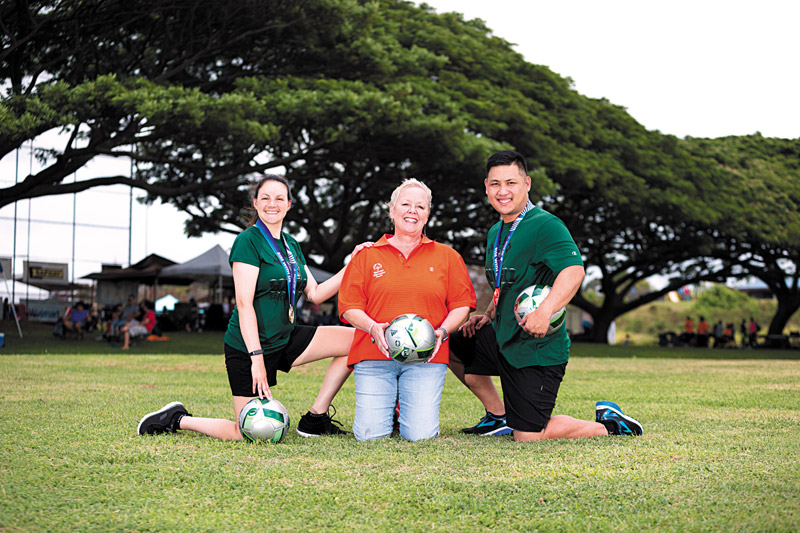
Special Olympics Hawai‘i president and CEO Nancy Bottelo gets ample support from soccer team co-captains Renee Manfredi and Kyson Cadiam. ANTHONY CONSILLIO PHOTO
Special Olympics Hawai‘i has spent the last half-century advocating for and celebrating those with intellectual disabilities. The push for education and acceptance continues, but the future has never looked brighter.
People have a lot of misconceptions about Special Olympics.
For one, it’s not a single Olympics-style event.
“People always go, ‘When’s Special Olympics?’ They think we’re once a year because when we started we were a once-a-year fun day for people, and it has grown into so much more,” explains Nancy Bottelo, president and CEO of Special Olympics Hawai‘i.
As the nonprofit celebrates its 50th anniversary this year, it reflects on a long history of service to those with intellectual disabilities — through sports, health care, empowerment and more.
“I’ve had so many parents say, ‘All I’ve ever heard is what my child can’t do: He’s never going to be able to read, he’s never going to be able to tie his shoes,'” Bottelo muses. “That’s not the case for everybody, but they hear all the things they can’t do — and then they come to us and find out all the things they can do.”
“I think a lot of times our athletes can do way more than even their parents think they can do, and they just need a chance to show it.”
Special Olympics offers, of course, plenty of opportunities in sports. Athletes, ranging in age from 8 to 84, practice weekly in a variety of activities, including basketball, bocce, bowling, golf, powerlifting, soccer, softball, swimming, and track and field.
Dedicated participants can compete against others in their districts — Special Olympics Hawai‘i hosts 45-50 such contests each year — culminating in three statewide contests annually, as well as opportunities to compete nationally every four years, and internationally every two.
That doesn’t include programs like Young Athletes (which serves those ages 2-7, who are still too young to compete) or Unified Schools, which mixes students with and without intellectual disabilities to foster camaraderie and understanding (46 schools in Hawai‘i participate in some capacity).
Some 11,000 volunteers pitch in to make it all happen every year.
“Our athletes are less likely to be homeless than the general population with intellectual disabilities because they learn to follow rules,” Bottelo says. “They learn to listen to their coach or their teacher if you get disqualified for not doing something right. I have had a lot of parents tell me their child didn’t make their bed, didn’t follow the rules at home — until they joined Special Olympics, and now they know there’s a reason for doing things the way you’re supposed to, and there are consequences if you don’t.
“We’re really building training for life for our athletes.”
But the program is about so much more than sports. Health care, for example, has risen to the fore as one of the major services Special Olympics offers to its participants.
“People with intellectual disabilities really don’t get good health care, they don’t get good dental care,” says Bottelo.
A lot of factors go into this. Some athletes can’t afford medical treatment for many of their problems. In other cases, doctors are not well-equipped to treat patients with intellectual disabilities.
Bottelo cites a story about a young man who had teeth that were broken off and rotten under the gums. It took years to persuade him to see a dentist, who graciously donated his time to do the procedure. The day after a painful, extensive surgery, the young man said he had never felt better — leaving volunteers to wonder how badly he had hurt before.
To this end, Special Olympics offers free medical care to its participants. Everyone gets a thorough screening upon joining, and there are opportunities throughout the year — like an annual Healthy Athletes Village that coincides with the summer competitions — to receive follow-up care from a variety of specialists in fields as varied as podiatry, dentistry, vision, nutrition, hearing and more.
“Our job isn’t just to go see people and say, ‘Gosh, you need help,’ and give them a letter to take home to their family,” Bottelo says. “It’s to make sure they get the follow-up they (need), especially on the most urgent cases.”
But the greatest service Special Olympics provides to participants may simply just be somewhere to belong.
“For a long time, I had no idea Special Olympics was out there,” says Renee Manfredi, who serves on Special Olympics Hawai‘i’s board of directors as athlete representative. “My disability is what is known as the invisible disability. I’m on the autism spectrum, and for years we’ve never gotten any support, no help, so when Special Olympics came along, it was a whole new world for me.
“Special Olympics takes somebody who has been on the sidelines of life and puts them down on the playing field. You’re a part of something. You’re not alone. You’re not left out. You’re included.”
Manfredi and a team of six other athletes also competed at Special Olympics’ USA Games in Seattle earlier this year, taking home the gold medal in soccer. Her team-mates concurred that camaraderie is a huge part of why they love the program.
“I like to be with friends and stay in shape, and I have a good time,” says Nicole Kelly.
“I love being with my teammates,” adds Kyle Burkhart.
Love is truly what pushes all Special Olympics participants along — whether they are athlete, family member, volunteer or mere observer.
“The joy and love you feel, it’s a lot different,” says coach Katherine Eum. “I coach a lot of different teams, but coming here, it’s just like an energy boost because you get to see how happy they are and how hard they try.
“It’s just a different level of warmth and appreciation you feel.”
Special Olympics Hawai‘i celebrates its 50th anniversary with a gala celebration at 5:30 p.m. Nov. 3 at Mid-Pacific Country Club. The organization also welcomes donations of HawaiianMiles to help fly neighbor island athletes to O‘ahu for competition.
For more information, visit specialolympicshawaii.org.
Nancy’s Story
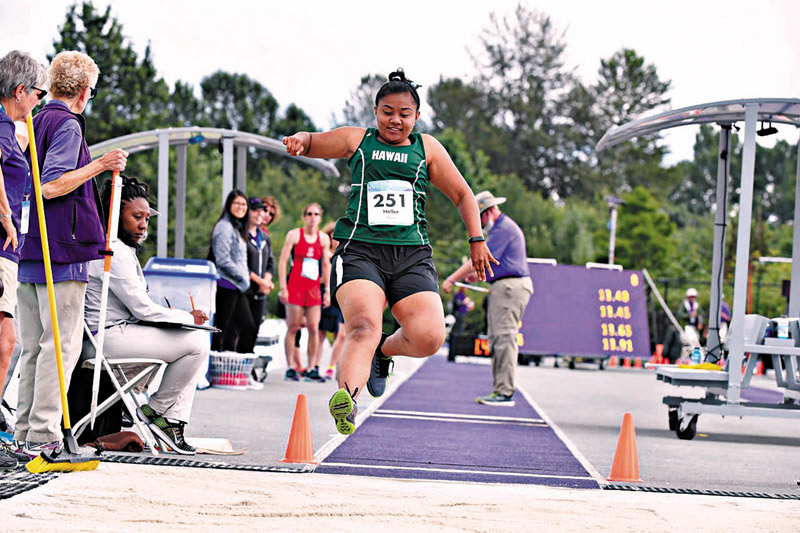
Nancy Bottelo has not — contrary to popular belief, as she jokes — been with Special Olympics Hawai‘i from the very beginning. After spearheading a Jacki Sorensen dance fundraiser and raising $100,000 for the organization in 1983, she was invited to join its board of directors. She became president and CEO in 1987 — and has been there ever since.
She credits her parents for instilling in her a lifelong dedication to service.
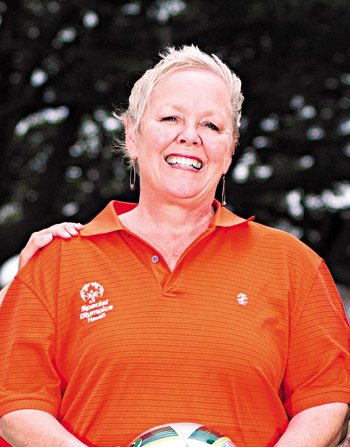
Bottelo
“I don’t think I’m giving back — I think I’m getting more than I’m giving,” she says.
In her long tenure, she’s proudest of the nonprofit’s strides toward better health care for athletes, and also takes care to emphasize its steps to normalize attitudes and educate the public that those with intellectual disabilities are people, too.
Most of all, she’s just happy to see Special Olympics helping families. She cites seeing parents overwhelmed at how well their children are doing in the program as a huge motivator.
“That’s where I get teary,” she says. “I expect our athletes to do good, but I see our family members, and we don’t know what they go through on a day-to-day basis, and just to see that — I really think we give hope to family members.”
Future Facilities
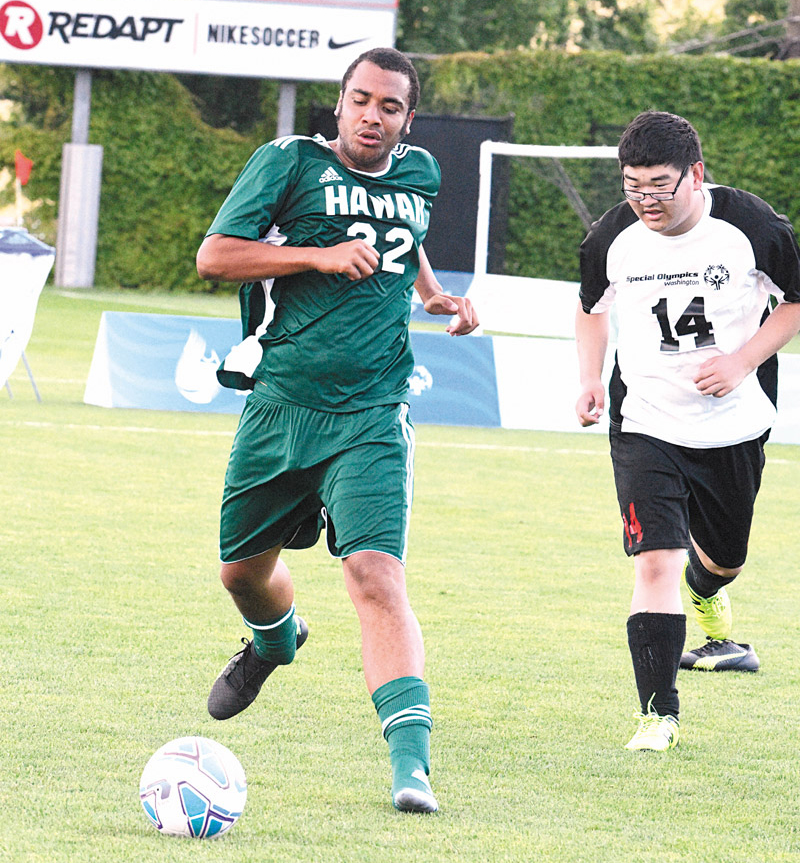
Special Olympics Hawai‘i is in the process of building a permanent campus in Kapolei — and, well, it’s been a very long process.
It was supposed to be done about four years ago, says Nancy Bottelo, president and CEO of Special Olympics Hawai‘i. But the extra time has allowed the nonprofit to really hone what it wants from the location and ensure it gets done right.
The future home of Special Olympics in Hawai‘i will feature, of course, athletic facilities and fields, a 24-hour gym, classrooms, meeting rooms, offices and more.
The group still needs about $900,000 to “go vertical” on the $11 million project, and Bottelo estimates they can begin using the campus in earnest next year at the latest.
Eunice Kennedy Shriver
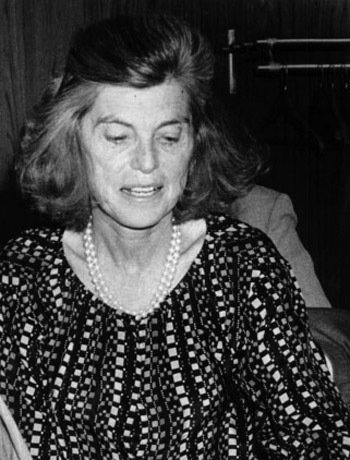
Special Olympics was founded in 1968 by Eunice Kennedy Shriver, the fifth of nine Kennedy children.
While everyone in America is familiar with brothers Jack, Bobby and Teddy, fewer know of Rosemary, the eldest daughter.
Rosemary was intellectually disabled, and the family kept her condition secret for many years. Eunice, however, was Rosemary’s champion — and soon, a champion for those like her.
Initially, Eunice held summer camps at her Maryland home, inviting those with intellectual disabilities to get individualized coaching and sports instruction. Later, she planned the first International Special Olympics Games in Chicago, and the nonprofit kept on growing. Today, it serves some 4.7 million athletes worldwide.
“I am so fortunate I got with Special Olympics when I did, because I got to work beside Eunice and Sarge Shriver,” says Nancy Bottelo. “She always thought they (the athletes) could do more, and she honored and respected them, and I think she’s really the person that did change the world.”





